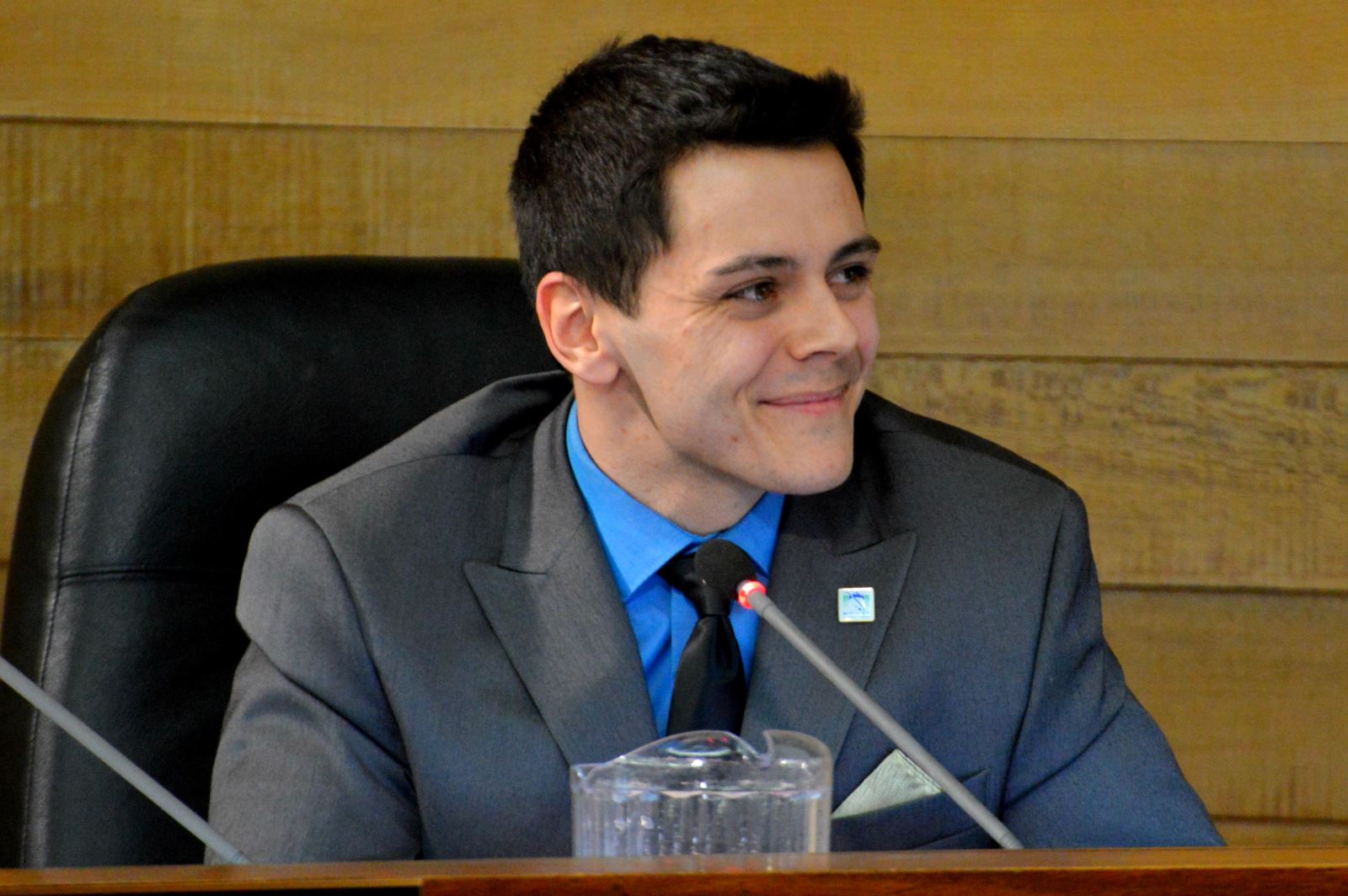 Deputy Mayor and budget chief Sheldon Forgette moved the proposed operating budget forward on Monday night, which calls for a tentative tax increase of 2.21 per cent. Forgette said he is confident the plan will pass in next week's vote. PHOTO BY LIAM BERTI
Deputy Mayor and budget chief Sheldon Forgette moved the proposed operating budget forward on Monday night, which calls for a tentative tax increase of 2.21 per cent. Forgette said he is confident the plan will pass in next week's vote. PHOTO BY LIAM BERTI
The tentative tax increase of 2.21 per cent is moving ahead as planned after the General Government Committee passed the proposed 2015 operating budget on Monday night.
Thanks to four intensive special budget meetings and countless hours devising their own plans, council managed to bring the original levy of 5.88 per cent down by almost $1.9 million over the course of the last month.
If approved at next week's regular council meeting, the city will be decreasing pay-as-you-go capital spending by $1.2 million, setting a $200,000 annual savings target for the chief administrative officer, and dipping into the tax stabilization reserve for $390,000, among a lengthy list of other cuts.
“I’m happy with where we are at and I do believe it will be supported next week,” budget chief Sheldon Forgette said after the meeting. “We are all one step closer to getting it finalized.”
Vice-chair of Engineering and Works, Chris Mayne, highlighted his committee’s most notable cuts in reducting salt usage on non-arterial roads in the winter for savings of $160,000, and the discontinuation of the culvert replacement program for savings of $240,000.
But that’s where the optimism ended, as he was quick to question the city’s chief financial officer, Margaret Karpenko, on whether she thinks the proposal represents a realistic, responsible budget.
“I think we are being slightly optimistic in the reductions identified,” Karpenko answered. “It’s the challenge and decision of council to move forward recognizing that those risks are out there.”
Some of those risks include drawing $390,000 from the city’s $10.5 million reserve funds and finding other arbitrary savings along the way.
“If we don’t find almost $1.1 million in savings through the course of this year, we are in line to go back to the reserves again,” said Mayne. “We are almost setting ourselves up for failure unless we are able to find some real, substantial savings over the course of the year.”
“Reserves are always intended to be one-time moneys and are intended to be used as one-time offsets,” Karpenko reinforced. “Using the $390,000 from the reserves, if we can’t find those savings next year, you then have to draw that same amount of money to have a zero per cent impact.”
Mayne also took issue with the reduction in capital spending, with pressing projects like the John Street Bridge and Pinewood Park in need of additional funding.
“With the capital budget in this city, the motto is ‘defer and shuffle’ as we try and meet the needs of the city to reduce the capital budget,” said Mayne. “I’m sure we will be able to do it, but I have concerns.”
Other councillors seemed surprised that the budget wasn’t still up for debate on Monday and, instead, set their sights on the group’s final budget session on Wednesday.
Coun. Mark King, who said he has further ideas to bring forward for Wednesday’s session, called attention to Sudbury’s recent approval of a tax freeze for the coming year.
“My allegiance stands with that taxpayer that is having an extremely difficult time at this point trying to meet the ongoing increase costs of owning a home here in the City of North Bay,” said King.
But in doing so, Sudbury is needing to draw $6 million from their reserve funds, an idea many around the North Bay table showed little interest in.
“I do not want to compare North Bay to Sudbury; we have our own challenges and face our own difficulties,” Forgette said bluntly.
Some of the various agency, board and commission budgets are also open to amendments as they come in before next week's vote, like the Police Services Board which is expected to meet on Tuesday.
But for now, Forgette continued to say say he feels confident with the tentative budget and commended council for breaking the mould and trying new things to get the job done, using examples like setting the CAO’s $200,000 savings target and establishing four-year levy projections.
While the final budget vote is expected to be cast next Monday, March 16, Karpenko warned that the lavy has to be determined by the drop-dead date of March 30.
After that, city staff still need a chunk of time to solidify tax policy and the levy distribution, meaning the 2.21 per cent figure could still be a far cry from what the average taxpayer will be charged come billing.


